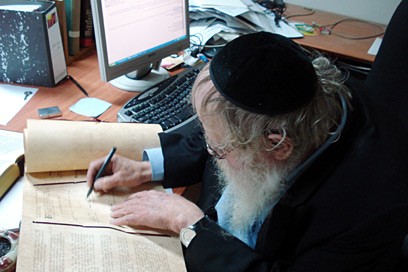A relatively new phenomenon has arisen:
The legitimacy of hatred.
Mutual hatred among Jews is no longer a thing that one is ashamed to express publicly.
On the contrary, it has become almost fashionable.
It cuts through all sectors – a simple, all-inclusive, fundamental hatred, a hatred that does not even need self-justification.
It does not need to say, “I am better, and therefore the others are worse.”
Rather, it is a hatred based on the others being, by definition, bad.
There is no longer a need to call each other bad names; one’s very label is enough of an insult: “settler,” “haredi,” “leftist” – are there dirtier words than these?
So the words themselves become foul, and the people become defiled and loathsome in one another’s eyes.
It is this that I am trying to fight, surely not on my own, but also not with much company:
Sometimes it feels as if I ‘m standing in front of gigantic waves of history that are coming to separate, to cut off, to sever all ties – ties of blood, ties of history, ties of family, ties of memory – and create separate units.
And not even units that exist next to one another without touching, but units that operate against each other, nourished by this mutual hatred.
It’s a bitter experience to hear people on all sides say: “What have I to do with them? We have nothing in common; let’s eliminate them.”
Everywhere is fighting, confusion and malady, with the groups all working against each other, trying to obliterate whatever is on the other side, as if they were saying:
“They shall die, they shall disappear, they shall get out of our lives.”
This is much more than a rift.
It is a feeling that the others are expendable, that they can be dumped, that they can be ignored.
–Rabbi Adin Steinsaltz

